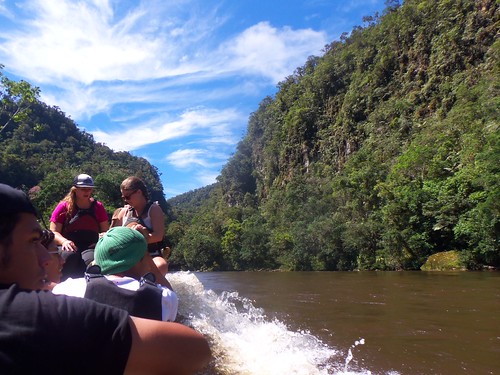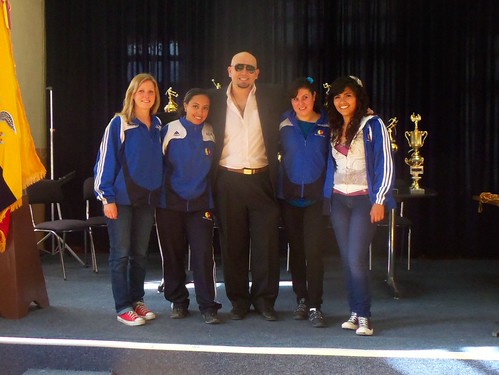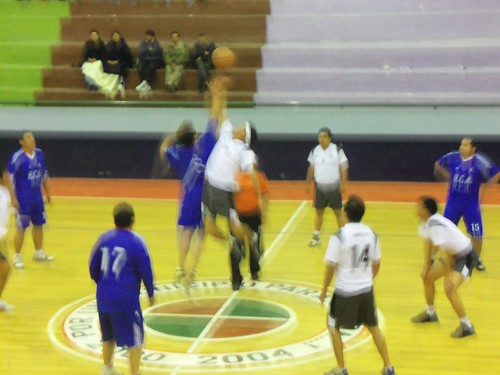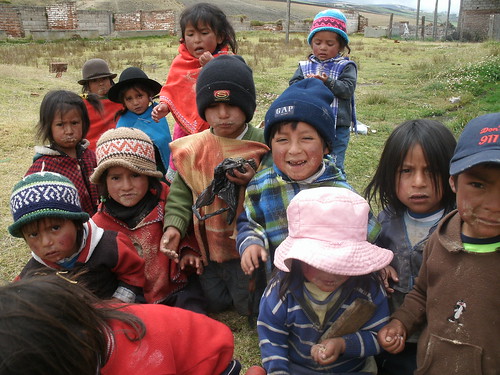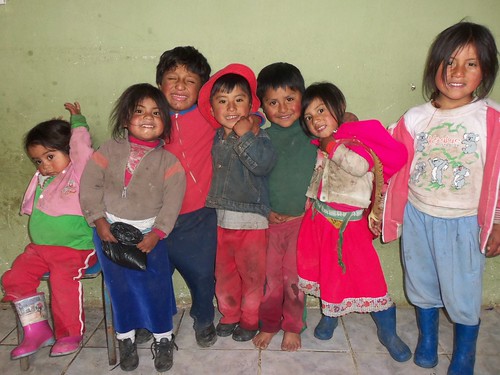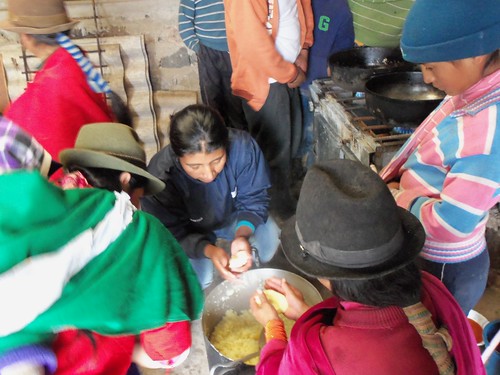Well hello there! How are you? Great to see you. I'm fine, by the way. Sorry I skipped posting in the month of May. For awhile there I was doing pretty well with the monthly posts, but that ended. Last month had a lot of ups and downs and I think most of my time was spent trying to process it all, before I wrote some rambling post and instantly regretted it.

In order to hit the highlights, here are the following topics I'll be covering: 1) Community Integration, 2) Dry latrines project, 3) General frustrations, 4) The Future.
1) Community Integration
According to Peace Corps philosophy, integrating into your adopted community is the crucial first step to accomplishing anything during your service.
a) What exactly does integration mean?
I'm glad you asked. The straightforward definition of integration means getting to know the people in your community, sharing experiences, learning about their way of life, needs and wants, and slowly becoming part of the community. Integration is something that we discussed a lot during training, but the reality was mostly lost on me because it's impossible to imagine the actual situation without ever having experienced it. We talked about what would happen if someone who liked to run a lot for exercise wasn't able to safely run at site, and stuff like that. Can you maintain your identity while modifying your behavior to conform to social norms? Yeah, you can, and although it depends on the person, its not really that hard.
b) And the million dollar question: Is it even possible for a gringa like me with blonde hair, blue eyes and crazy ideas about life to actually become a part of the community?
The jury is still out on this one. In my mind, the answer is simply no. If I lived here 20 years, married an Ecuadorian and had lots of half-Ecuadorian babies... maybe. But the reality is that I am a United States citizen, I have a valid passport, and I can go home whenever I want (and probably will be going home in 15 months). I have access to a wealthy country that people are literally dying (and being jailed) to get into. The fact that the United States has it's own laundry list of problems, and in some ways is worse off than Ecuador, is completely lost on people here. The math is simple: USA = work and money, which = clothes, food, electronics, cool stuff, and happiness. Ecuadorians can be extremely envious of my opportunities, which makes integration impossible if they're always focused on our differences.
Not everyone is jealous of course, but other misconceptions about gringas come into play too. Namely, that we are all extremely promiscuous and will have sex with anyone. This is a particularly vicious rumor that almost all people (educated or not) have about white women. This translates to men asking lots of inappropriate questions about my personal life, and women more or less ignoring me (or giving me the stink eye). It's not always that way, but a couple times a week, I'll have a weird encounter with someone that seems totally random and unnecessary and leaves me feeling like crap. It's definitely difficult to make friends and integrate when everyone thinks you're a slut.
The good news is that I do actually feel like I'm integrating pretty well, but in Tixan, not in Alausi. For that reason, I'm planning on moving to Tixan in the next couple months. I think moving will make everything (work, life, integration) easier. Tixan is a much smaller community, and although I'll have to leave behind some comforts (my very own kitchen, a market right down the street, internet in the house, lots of privacy), I think that ultimately it'll be for the best. I'm only planning on doing Peace Corps once in my life, so I might as well go all out and try my hardest to make things work. I've encountered a number of naysayers who don't think I'll be able to live in Tixan, but really, I doubt it's going to be much of a problem. Different, yes, impossible, hardly.
2) Dry latrines project
I wish I had better news, but this dry latrines project is just not going very well. The community of Chalaguan could use some better sanitation, but there has been a lot of disagreement about how to go about doing it. Some people don't want a dry latrine at all; they want a flushing toilet. I told them good luck, but I'm not going to help them with that. Other people want a latrine, but don't appear to want to do any work whatsoever. Many of those same people say that they don't want to do a pilot project (where we build 2-3 toilets in the community), but that they want a toilet for every family, or none at all. My response has been and always will be, "Do you have $15,000 to give everyone a toilet? No? Yeah, me either."
Starting with a few toilets is the only way to begin this project, but only a few men truly understand that (and I can name them on one hand). There are a few families that are interested in continuing with the project (which, as of now, is still in its theoretical stages... we've done nothing in terms of construction or applying for funding), but we have yet to organize them. My counterparts are all over the place, are poorly organized, and don't appear motivated to do much. There are a couple other guys in the community that seem to have it more together, but I'm not sure exactly how to get everyone together to have a productive discussion. A few people who want flush toilets always show up to the meetings and complain. Annoying!
I was and still am excited about the potential of this project, but I feel like I've gone about it the wrong way. I've been too cautious and wanted to give the community a chance to step up and take the reigns. Although, at the same time, with the exception of one meeting that went horribly, I'm not totally sure how I could have acted differently. I'm very aware than I'm an outsider, and I'm not going to obligate people to particpate in this project. I want them to want to do it. That being said, I think that I should work more on the motivation side of things and be more of a cheerleader/organizer to get this thing off the ground.
3) General frustrations
Well, I think I've already talked about a few of these, thats probably good for now. So... nevermind.
4) The Future
As I already mentioned, the plan is to move to Tixan in the next couple months. I've got some ideas in mind for starting a healthy living club in conjunction with the clinic and possibly doing a dance class or something. I must admit the motivation for this is not purely altruistic... I'm either gaining or losing weight here in Ecuador, and currently the weight is on the rise. Yesterday, the obstetrician at the clinic said I looked "gordita". Lovely.
A month or so ago, I finished drawing a big poster on complimentary feeding for babies/kids 0-2 years old (picture below), and my counterpart at the hospital wants to use it to make a few big, fancy, laminated posters for the county, which is pretty cool. I guess the Ministery of Health will fund it. We'll see how they turn out. We talked the other day about doing other ones with recipes or something, but I'm already thinking about doing one on suggestions for getting kids to eat healthy foods. In doing the nutrition counseling at the clinic, the most frequent thing I hear from moms is that their kids don't want to eat or don't eat very much. With malnutrition rampant in this area, it's becoming apparent that its partly because people don't have enough to eat, and partly because kids don't eat all they are given. I don't totally understand why, but I suspect its a combination of parasites causing a lack of hunger, and parents not being patient or creative in their attempts to feed their kids. So! If anyone reading this has any suggestions or creative ways you've seen or used to get kids to clean their plates, LET ME KNOW!!! The more ideas the better, I think.

As for the immediate future, my parents are coming to visit in 16 days!!! I think its going to be good. We've got an exciting itinerary lined up, including time in the mountains, the jungle, a few days in Alausi to celebrate the annual celebrations, and a quick trip to the Galapagos with Deb. I'm very excited, in desperate need of a vacation (in the last 6 weeks, I've spent one night out of site), and I hope they're brushing up on their Spanish (hint, hint).
Welp, thats all for now! I've been trying to keep up with the picture posting over at My Flickr, so check it out. I'll leave you now with a short performance of a song in Kichwa by some 4 and 5 year old girls I know. Yes, that actually is Kichwa and not just nonsense (although it's really hard to tell). Enjoy!







